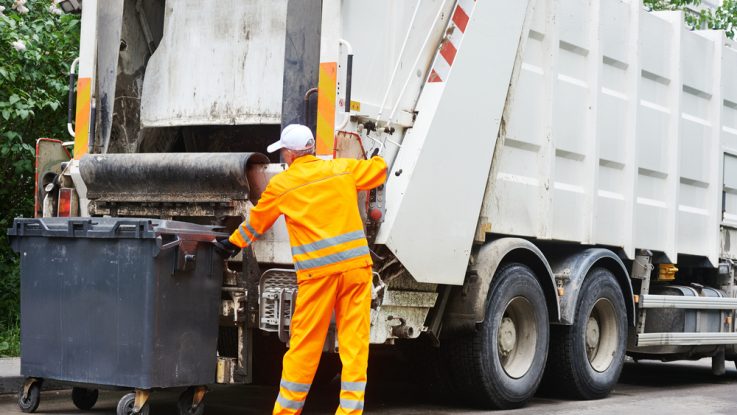
By Laura Murphree, Managing Editor, Smart Cities Connect Media & Research
It’s probably safe to say that city residents often take for granted the humble garbage truck – thought of only as we run to the curb, one house slipper barely on, to pull out the waste bins for pick up. However, it’s easy to imagine the kind of chaos their absence would create and, perhaps less obviously, the potential that a vehicle driving every city street every week represents.
I had the distinct pleasure of speaking with Conor Riffle, Senior Vice President at Rubicon, a B Corp that uses technology to drive environmental innovation. Specifically, Rubicon’s mission is to end waste, and it does this by helping its partners find economic value in their waste streams. Listen in to learn more about how Rubicon works to help cities get smarter:
The Unsung Heroes of Urban Cleanliness
Garbage trucks are uncelebrated heroes. They dutifully navigate through our streets, collecting refuse and ensuring that our cities remain habitable and healthy. Despite their consistent presence, the true potential of these vehicles often goes unnoticed. Riffle sheds light on the transformative role Rubicon plays in optimizing waste management.
Technology Driving Change
At the core of Rubicon’s mission is technology. The company employs a digital platform that connects waste generators with waste haulers, creating a seamless and optimized waste management network. This tech-driven approach not only enhances the efficiency of waste collection but also transforms waste from a liability into a potential asset.
Economic and Environmental Transformation
The economic and environmental implications of Rubicon’s work are profound. By identifying opportunities within waste streams, the company’s partners can discover new revenue streams and cost-saving measures. This not only benefits their bottom line but also incentivizes sustainable practices.
Beyond economics, the environmental impact is noteworthy. Efficient waste management reduces the strain on landfills and promotes recycling and reusing. Rubicon’s model encourages the shift from a linear economy (take, make, dispose) to a circular one (reduce, reuse, recycle), aligning with global sustainability goals.
Empowering Change Agents
Rubicon acts as an educator, demonstrating the potential of waste reduction and the importance of responsible consumption. By empowering businesses and communities with knowledge and tools, the company fosters a network of change agents working towards a waste-free future.
A Paradigm Shift
In the grand tapestry of urban life, garbage trucks might appear as mere background noise. Yet, they represent an opportunity for significant societal and environmental change. Rubicon’s innovative use of technology, combined with its commitment to sustainability, turns these seemingly mundane vehicles into catalysts for a paradigm shift in waste management.
As my conversation with Conor Riffle concludes, one cannot help but feel inspired by the potential for positive change that Rubicon embodies. The next time you hear the familiar rumble of a garbage truck, consider the hidden possibilities it carries – not just in terms of waste disposal, but as a driving force for economic prosperity and environmental preservation.